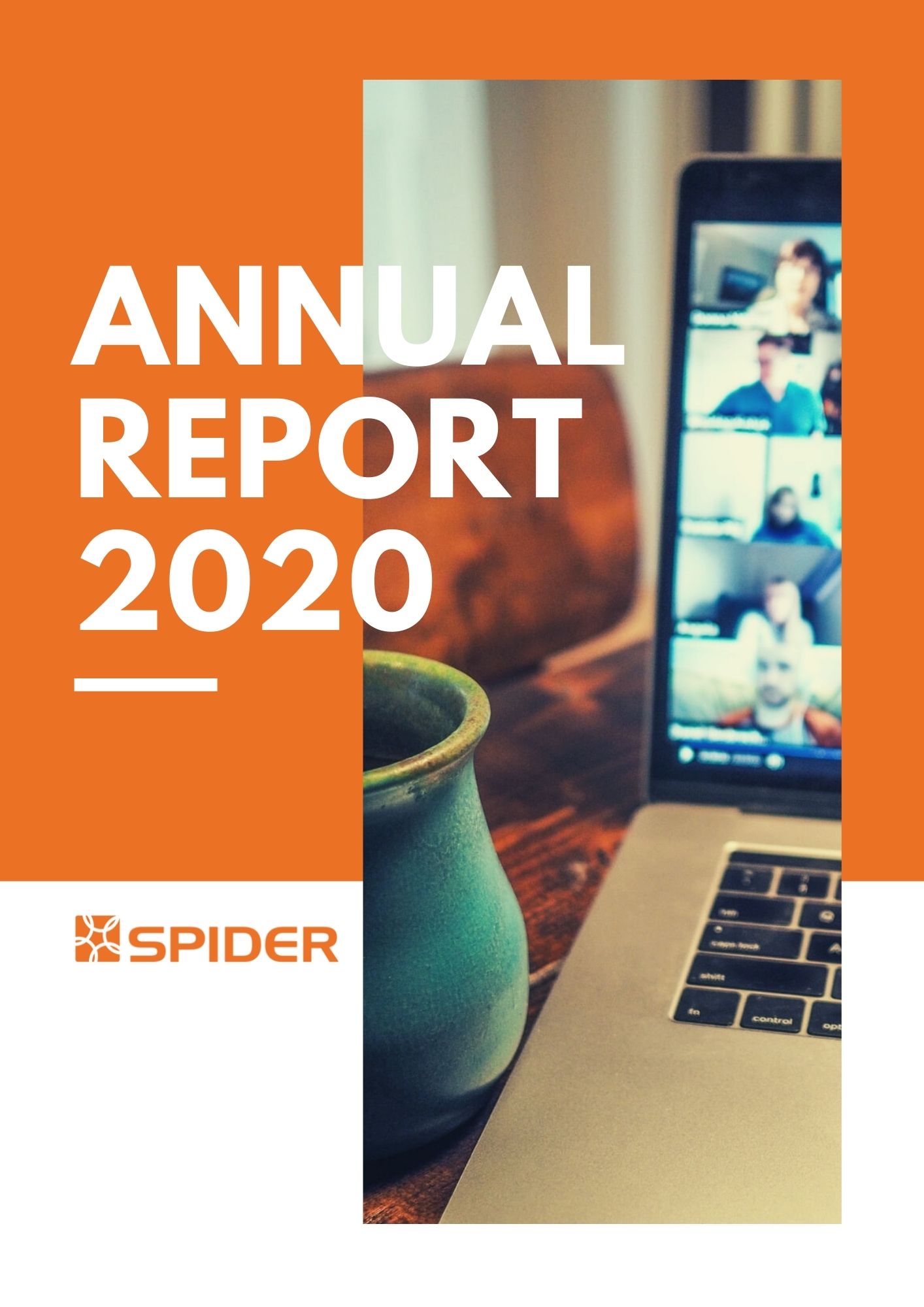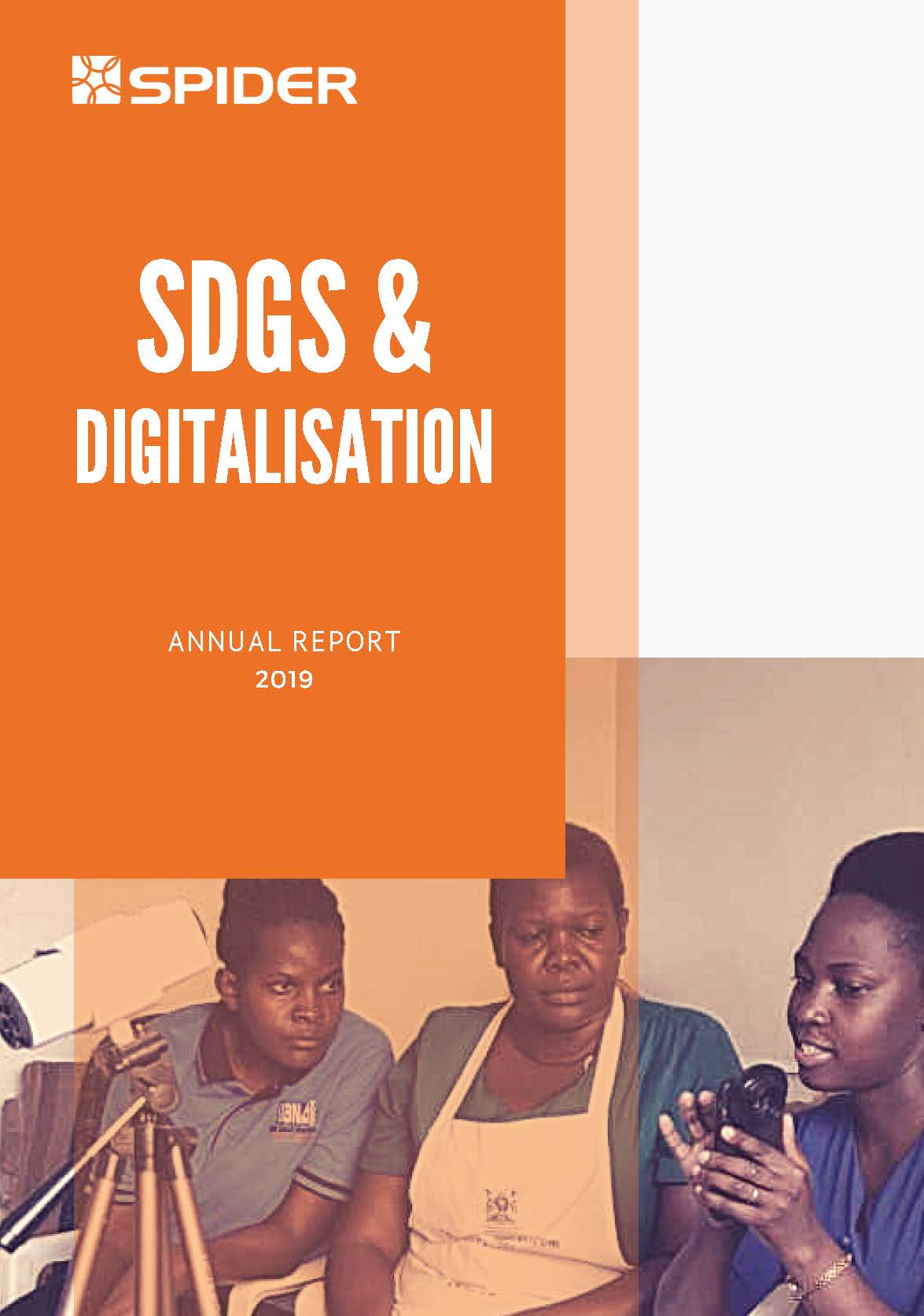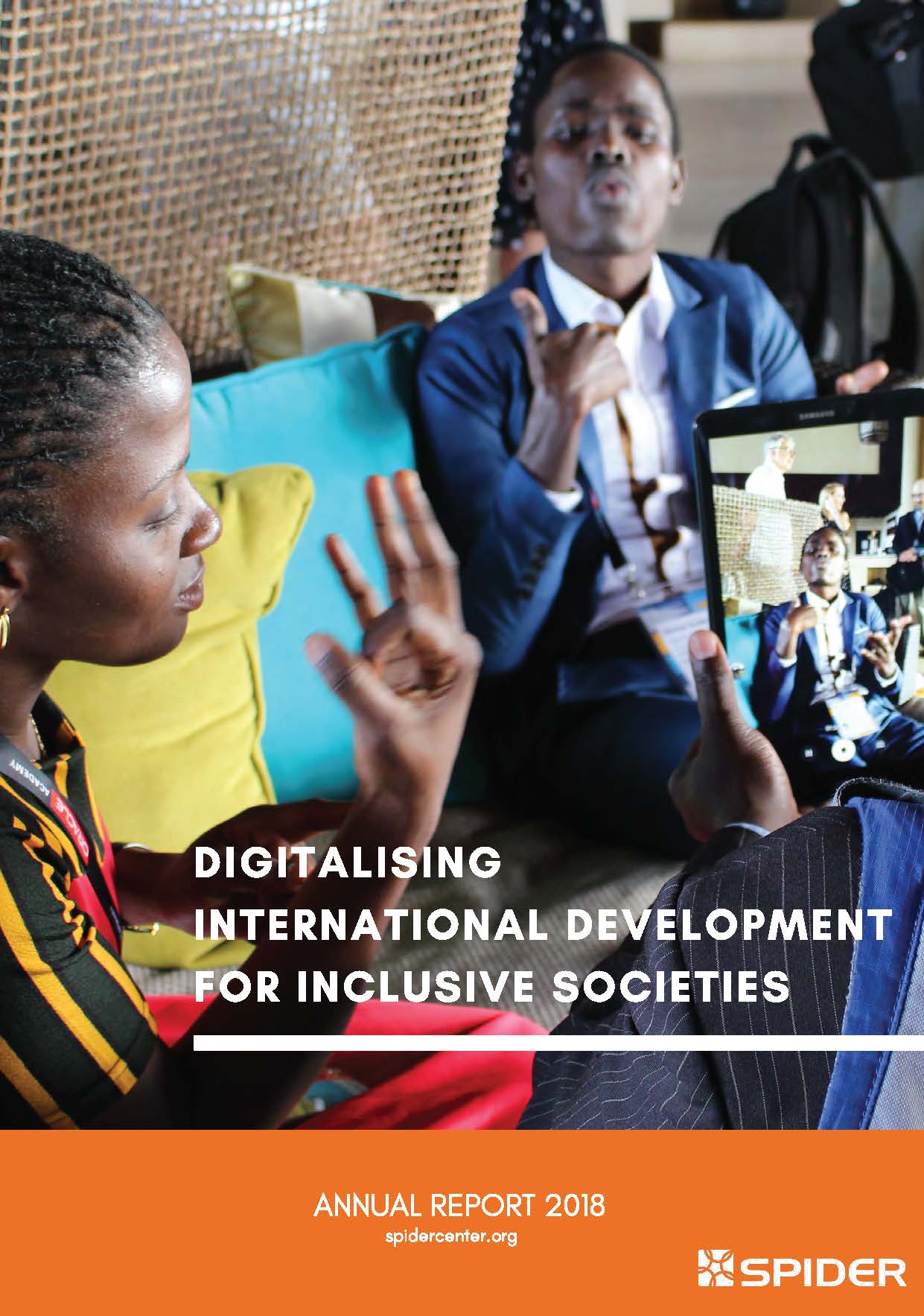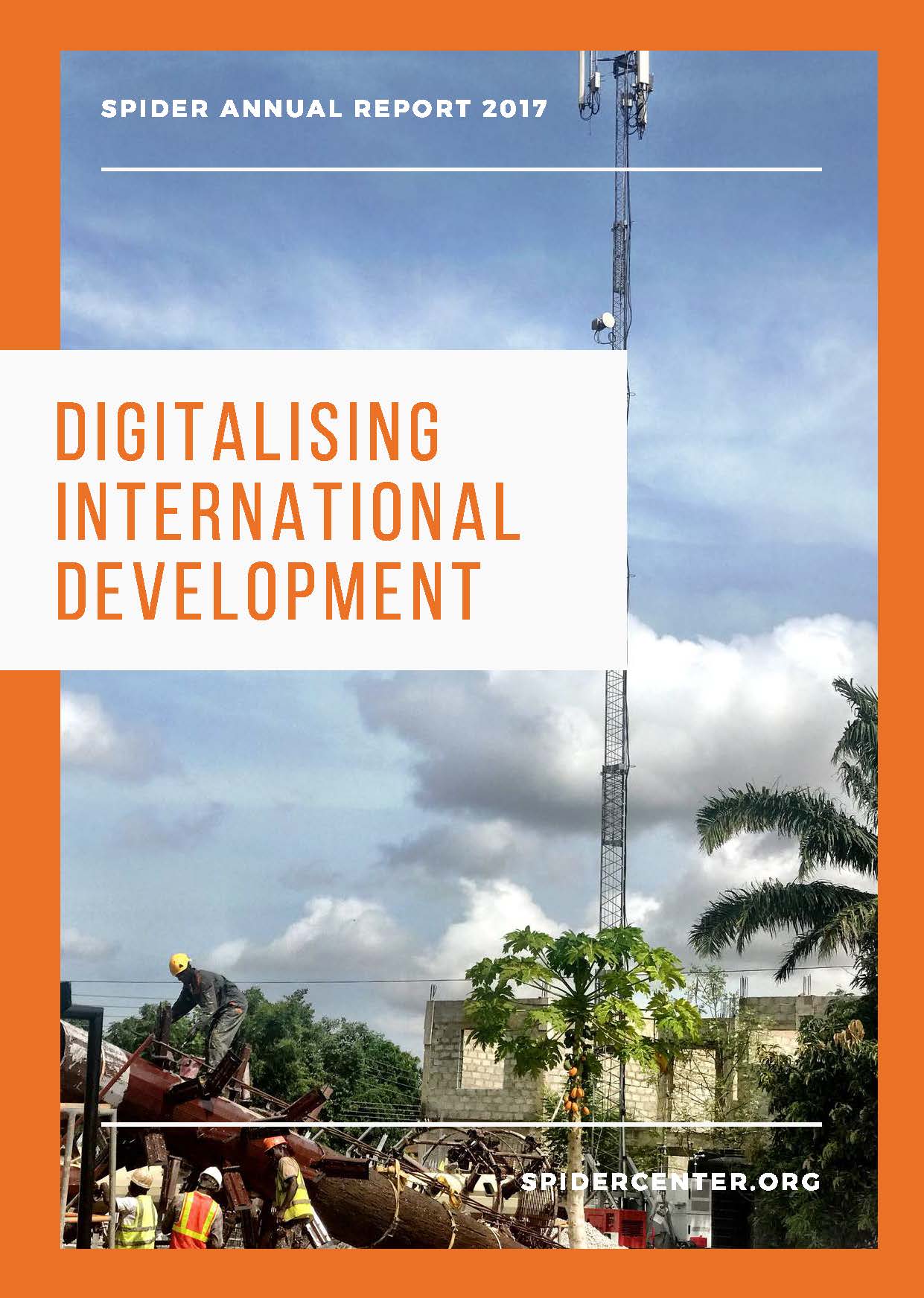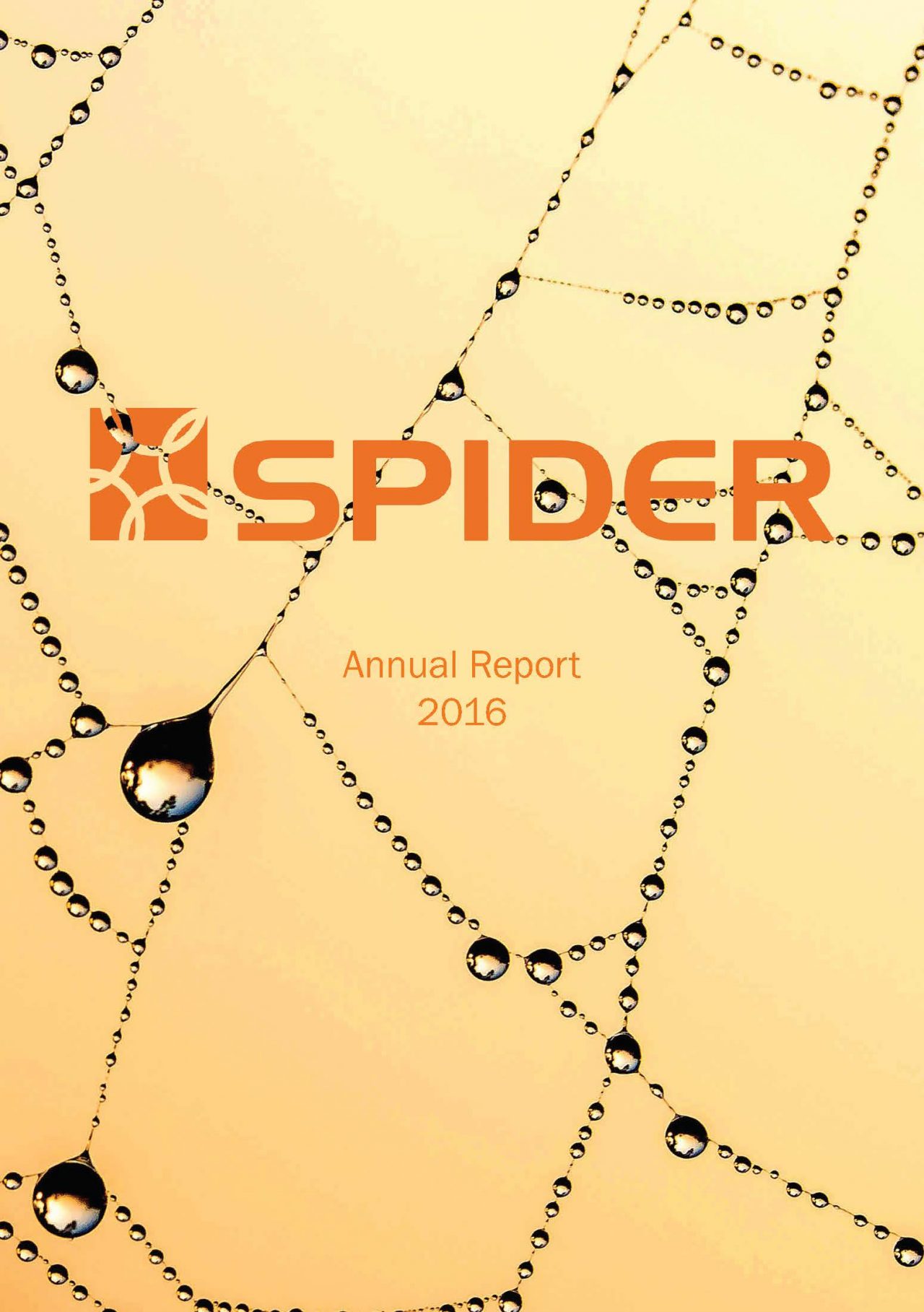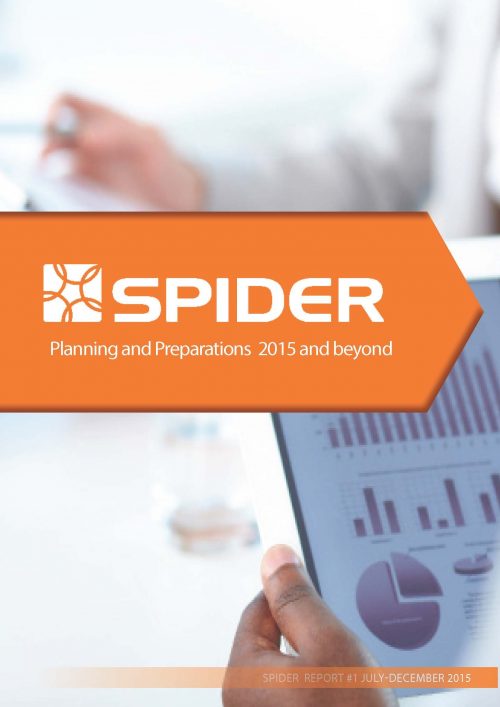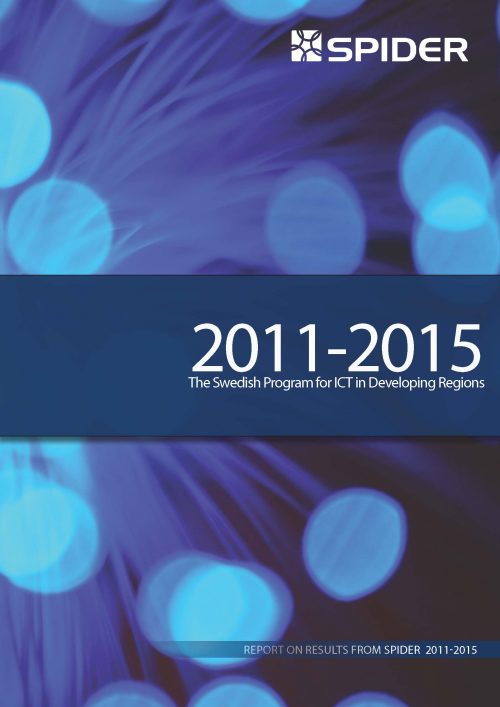Annual Reports
Click on the report image to download the reportSPIDER annual report 2020
Digitalisation and a global pandemic
2020 will be remembered for how Covid-19 completely changed life for many people with far reaching socioeconomic consequences. Covid-19 made SPIDER’s vision of an interconnected world where digital solutions enable everyone to have their needs met and their voices heard, more relevant than ever before.
The pandemic has shown clearly that ICTs are indispensable to keep society running. With restrictions closing down parts of or entire societies, the possibility to move online for work, school or access to other services became vital. It also showed the huge difference in ICT access, making the gap between those who have and those who have not grown wider, and whose jobs could move online or not.
SPIDER annual report 2019
SDGs and digitalisation
SPIDER takes a look at how the past year’s work that is reported has contributed to the fulfilment of the Sustainable Development Goals (SDGs).
Highlights include:
- National adoption of career counselling app developed at the ICT4D solutions incubator
- Digital books created to improve literacy and numeracy skills for children in the Nyarasugu refugee camp
- Mobile colposcopes greatly increased cervical cancer screening numbers in rural Uganda
- SPIDER starts working with Somalia to improve maternal and child health care systems
- High speed wifi coverage and increased bandwith at the Makerere university campus
- New ipid chapters in southern Africa and Asia
- First round with participants from Francophone African regulators
2017
SPIDER bi-lateral partners UMSA and UDSM entered a ground breaking south-south collaboration when the research managment system developed in UMSA’s project was shared with UDSM for use and futher development by UDSM.
The Penthio event in Abuja brought SPIDER network leaders together for training and connection between networks.
2016
SPIDER expanded work to new countries: Zambia and Myanmar. Open calls for projects in health and education were completed.
A pilot programme capacity building ICT Regulators was successfully completed and turned into ICT Regulation – Policy and Practice with two classes per year starting in 2017.
2015
Sida confirmed continued support to SPIDER until the end of 2019. July 1st marks the start of the current agreement.
Finalising the agreement took until the end of the year which allowed SPIDER to dedicate the first six months of the 2015-2019 programme to planning and preparing for the coming work.
2011-2015
SPIDER shifted focus and started to support smaller organisations with closer local ties.
Regional and/or thematical networks for knowledge sharing and collaboration were started.
Swedish universities contributed to an empirically grounded project follow up gave theoretical context to projects.

